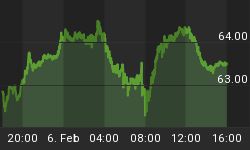The world's unceasing quest for new oil deposits has combined with offshore technology to impel many countries to investigate their offshore resources in their "exclusive economic zone," (EEZ) defined by the 1982 United Nations Convention on the Law of the Sea Part V, Article 55 as extending 200 nautical miles from a nation's coastline.
Difficulties arise in congested maritime areas where overlapping claims create friction, and one of the most contested areas in the world today are the waters surrounding the Spratly islands of the South China Sea.
The Spratly islands consist of more than 750 islands, islets, atolls and cays and their EEZ real estate is variously claimed by China, the Philippines, Taiwan, Vietnam, Malaysia and Brunei. While there are no native islanders, about 45 islands of the archipelago are now occupied by Vietnamese, Chinese, Taiwanese, Malaysian and Filipino forces, all determined to assert their nations' claims of sovereignty. Given the potential resources, the possibility of confrontation is significant and is already occurring.
On Wednesday the Philippines said it had formally protested to China about its intentions to situate an oil rig in the disputed waters of the South China Sea. China's charge d'affaires in Manila was summoned to the foreign ministry where it "requested clarification from the Chinese embassy on the recent sightings of a China Marine Surveillance vessel and other People's Liberation Army Navy ships." Filipino officials queried the Chinese diplomat about Beijing's apparent intention to install in July its most advanced offshore oil rig in the South China Sea near the Amy Douglas Bank, which is "well within the Philippines' 200 nautical miles Exclusive Economic Zone." The rig's intended site is about 26 nautical miles from Flat Island, one of the outcrops in the Spratlys archipelago occupied by the Philippines, and 125 nautical miles from the Philippine island of Palawan.
The issue is a complex skein of international law, as China claims all of both the Spratly and the Paracel Islands in the South China Sea as well as their adjacent waters but the Philippines maintains that any construction in the area violates a 2002 agreement signed by China and the 10 Association of Southeast Asian Nations (ASEAN) member states.
Moving on the diplomatic front beyond bilateral relations, in March the Philippines filed a formal protest at the United Nations over China's claims to the Spratly islands and adjacent South China Sea waters.
The Spratly dispute has enormous implications for the global quest for offshore hydrocarbons. China's immense economic and military power make it the dominant power in the dispute, but it is worth remembering that China and Vietnam fought a brief but bloody border war in 1979. It is in the world's interest to support a diplomatic solution to the problem, which, if successful, could provide a template for other disputed maritime disputes, most notably an equitable division of the Caspian's offshore waters, an issue unresolved since the 1991 collapse of the USSR, which saw the diplomatic arrangements between the Soviet Union and Iran replaced by conflicting claims between Iran and the USSR successor state of the Russian Federation, Azerbaijan, Kazakhstan and Turkmenistan.
By Dr. John C.K. Daly for OilPrice.com. For more information on oil prices and other commodity related topics please visit www.oilprice.com















